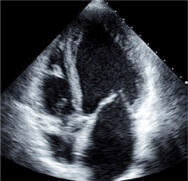Dilated cardiomyopathy is a heart muscle abnormality in which the heart is enlarged and doesn’t contract normally. Causes include viral inflammation of the heart, excess alcohol intake and underlying coronary heart disease.

How common is it?
Dilated cardiomyopathy affects approximately 1 in 2000 of the population.
What symptoms might I get?
If the heart function is significantly impaired, a dilated cardiomyopathy can result in symptoms of breathlessness, fatigue and ankle swelling. Some patients can develop abnormalities of their heart rhythm.
What extra tests are required?
You may require further imaging of your heart with a cardiac MRI or coronary angiogram to exclude underlying heart artery abnormalities. Some blood tests will be needed.
Will I need treatment?
You will need to take medication, not just to help reduce symptoms, but also to help protect you in the future. Some patients require a pacemaker to help improve heart function.
Is it hereditary?
It can be. We recommend screening of immediate family members if no other cause has been identified.
Does this affect my life expectancy?
It can do. Unfortunately patients with dilated cardiomyopathy can develop progressive heart failure, shortening their life.
What happens next?
If you have been diagnosed with a dilated cardiomyopathy then an appointment can be made with a local cardiologist to discuss further investigation and treatment options.
Useful links
https://en.wikipedia.org/wiki/Dilated_cardiomyopathy